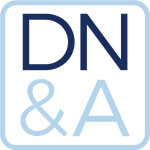Dr. Noble & Associates Blog
Psychoeducational Assessments
By Dr. Cheryl Noble C.Psych.
We’re All Different!
Each person is unique and possesses a mix of strengths and weaknesses. This means that some of us have parts of our brains that work better than other parts, and some of us have parts that make learning more difficult, whether it’s with math, reading, writing, problem-solving, focusing or enjoying satisfying relationships.
By identifying our child’s strengths and weaknesses, we as parents and educators can help our children learn to the best of their ability. Some parents are concerned that undergoing a psychoeducational assessment means that there is something wrong with their child or teen. This is simply not true.
Knowledge is power. Becoming aware of what your child/teen’s strengths and weaknesses are, is empowering. And, part of good parenting is threefold:
- Mobilizing your child’s strengths
- Understanding their social and emotional functioning
- Supporting their challenges.
What Are the Benefits of an Assessment?
- Provides a roadmap for educators to begin to build a plan for your child/teen’s success
- Sets realistic academic expectations based on their strength and weakness profile
- Dispels any misconceptions about your child/teen
- Gives a better understanding as to whether your child/teen’s development is proceeding as expected relative to others their age
- A tool to monitor progress and change over time
- Enjoyable! Children/teens appreciate receiving one-on-one attention and interest from a supportive adult
Timing is Everything
Ideally, you should have your child assessed as soon as difficulties become apparent. Difficulties can include:
- Underachievement
- Achievement only through long hours of study and effort
- Focus and attention
- Organization of time and materials
- Getting assignments done
- A history of procrastination
- Behaviour problems
- Low mood and/or worry
- School refusal
It is important that the assessment does not coincide with other significant changes in the child’s life, such as the birth of a sibling, moving to a new place, or the loss of a family member.
Because school wait lists for assessments are long and can take time to complete, you have the option of a private assessment to shorten the wait time. Further, there is a benefit to having the assessment started in the spring and summer months. Educators can use the recommendations from the report to design a learning plan before the academic year gets too far underway. And, if there is a significant learning problem, or they meet the requirements for giftedness, the school team can identify your child as exceptional and allow for accommodations or modifications to their learning experience.
Many children with academic, social, or behavioural challenges begin to flourish very shortly after being connected with the support they need to succeed.

Dr. Cheryl Noble
Psychologist
Dr. Cheryl Noble is a clinical psychologist with more than 22 years of experience in psychological counselling and assessment. She has been in private practice since 1997, and while originally trained as a child and adolescent specialist in therapy and learning assessments, She's also qualified to work with adults and families.



